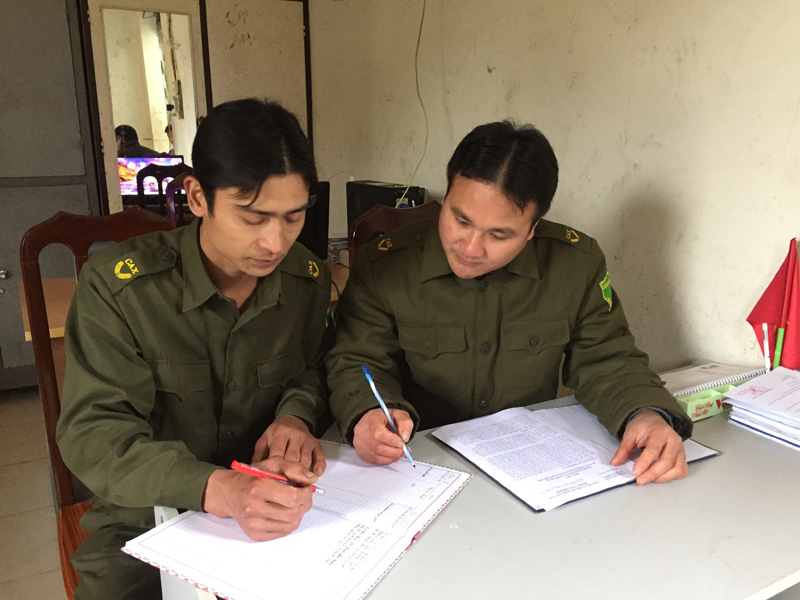
(HBO) In the past years, the situation of security in the area of Quyet Chien commune (Tan Lac) has been maintained, not causing hot spots, "clean" without any social evils.

The police force of Quyet Chien commune (Tan
Lac) exchanges information, grasping the security situation at the facility.
The commune area is wide and people live
sparsely, making it difficult for functional forces to manage and grasp the
actual situation at the facility. In addition, the commune is adjacent to Lung
Van, Ngo Luong and Dich Giao; Thung Khe, Noong Luong (Mai Chau) communes. In
this area, there used to have frequent incidents of scandal and public disorder
among young people in the region. Before 2010, the use of homemade weapons for
hunting wild animals was widespread, potentially affecting the security and
social safety.
Every year, the commune’s police actively
coordinate with departments, agencies and unions to integrate the legal
propaganda, dissemination and legal education sessions in the villages and
hamlets, attracting over 1,000 participants. They are regularly organizing
periodic briefings to exchange information, assigning officials to follow the
localities, grasping the actual situation to promptly handle sudden and
unexpected cases. They also develop a plan to coordinate with military forces,
and militants to organize attacks against crimes, patrol armed on holidays and
Tet; calling to ask, deterring those who have the signs of violating the law.
In order to ensure the security in the
adjacent areas, the commune’s police have participated in the "Continuous
security" between 6 communes of Tan Lac and Mai Chau districts. They have
set up "The hamlet of safe security” in 7 hamlets, 7 reconciliation teams, 7
patrol teams and 7 mailboxes denouncing criminals. A model of
"self-governing interdisciplinary economic development in association with
ensuring safe security" has been piloted to build in Trung Hung hamlet.
They also continue to maintain, consolidate and replicate the models which
create the solid people's security postures with the motto "Self-defense,
self-management, self-protection, self-reconciliation".
With just over a month left until the school summer break, students are eagerly anticipating a period of rest and fun after a year of academic pressure. To provide a healthy environment for the physical development, in addition to the classes that foster talents and enhance the academic knowledge, sports and physical activities continue to attract a large number of children and teenagers.
On April 17th, Hoa Binh Provincial Museum organized a program to promote and introduce the outstanding values of "Hoa Binh Culture” at the Boarding Secondary and High School for ethnic minority students in Mai Chau District.
The Hoa Binh College of Technical Technology, in collaboration with the Hoa Binh Technical and Economic College and the provincial Association of Literature and Arts, hosted a gathering on April 15 to celebrate Laos’ traditional Bunpimay (New Year) Festival 2025 and debut the new book "Nguoi Muong o ban Don” (Muong people in Don village).
In the millennia-long history of national construction and safeguarding, people of all ethnic groups in Hoa Binh have been united and closely bound together to overcome all difficulties and challenges, standing alongside the entire Vietnamese people throughout the history of building and defending the country.
Living green is a healthy, positive, and sustainable lifestyle that not only helps protect
the environment and quality of life but also conserves natural resources and ecosystems.
Among the many ways to embrace this lifestyle, reducing plastic consumption is one of the most impactful.
The women's unions at all levels in Kim Boi district have been making significant contributions to the movement of building cultural life in the local community.
The movement helps improve rural look and the spiritual and material lives of local residents.



